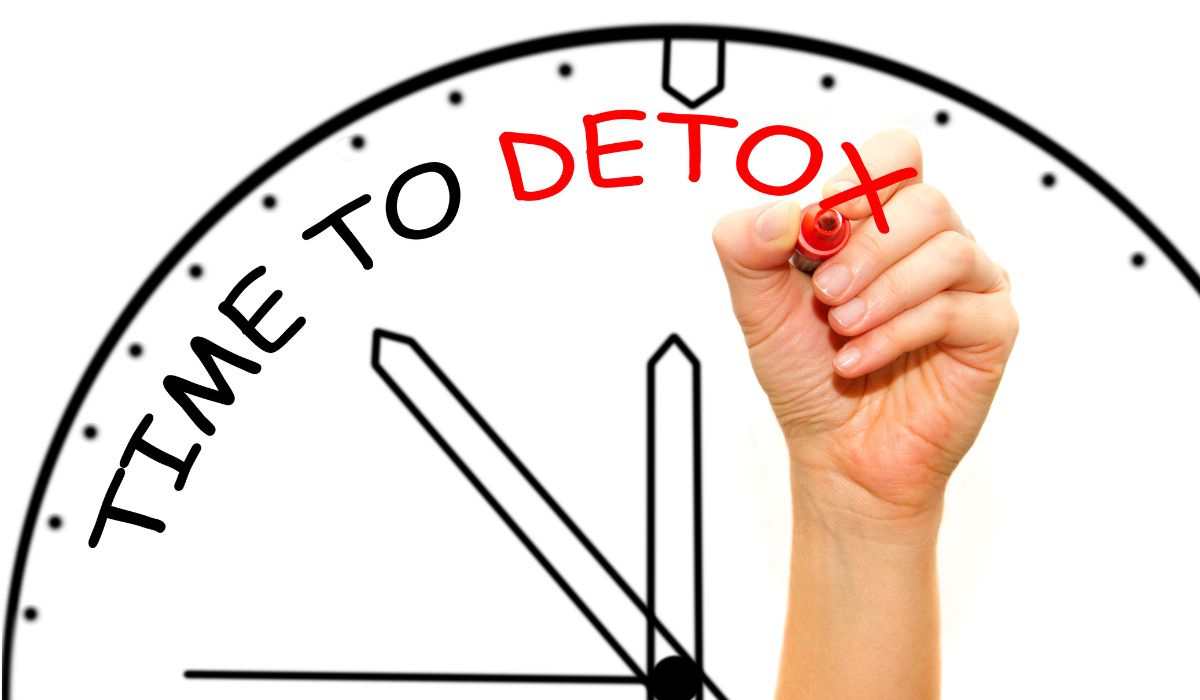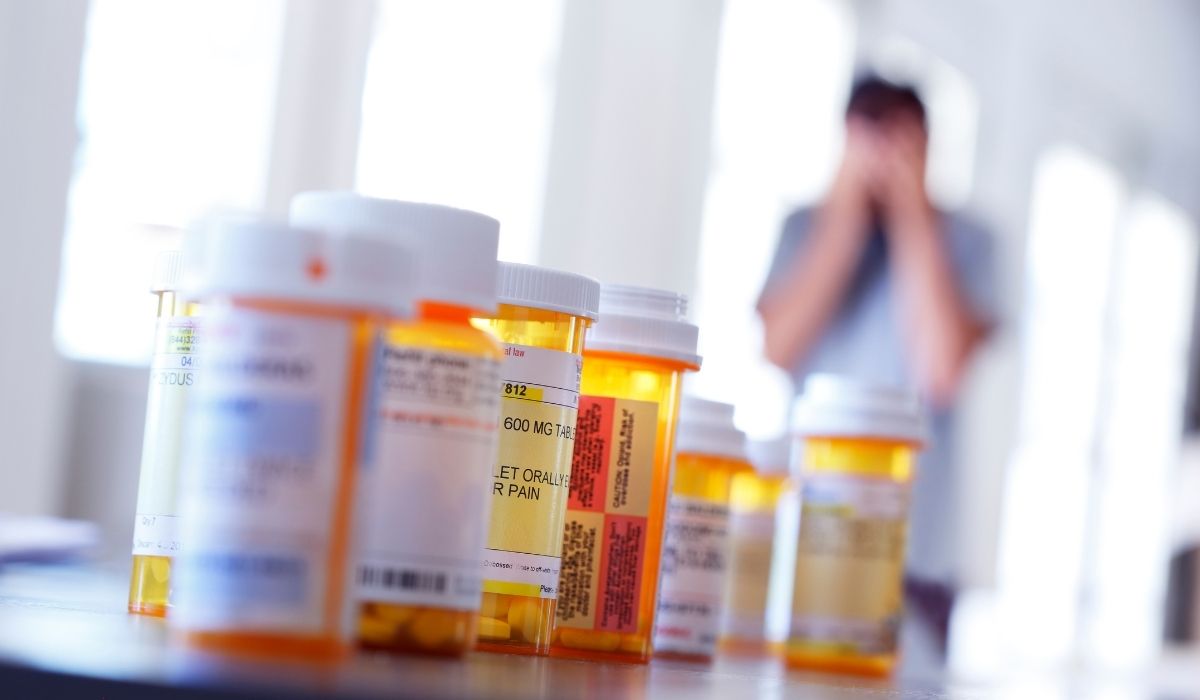What’s the Best Way to Prepare for Alcohol Detox?
When someone decides to stop drinking, it’s a big step toward better health and freedom from addiction. But before starting, it’s important to understand what alcohol detox is and how to prepare safely. Alcohol detoxification helps your body remove alcohol and begin healing. However, it can be risky if done without help. Knowing what to expect and planning ahead can make recovery smoother and safer.

What Is Alcohol Detox?
Alcohol detoxification is the process your body goes through to remove alcohol and adjust to not having it in your system. When you stop drinking after regular or heavy alcohol use, your brain and body react. This reaction causes alcohol withdrawal symptoms, which can range from mild anxiety to dangerous conditions like delirium tremens (DTs) and seizures.
Because of these risks, doctors often recommend that detox happen under the care of a health professional. Medical supervision ensures your blood pressure, breathing, and electrolyte balance stay safe during detox.
Why Preparation for Alcohol Detox Matters
Preparing for alcohol detox can make the process safer and less stressful. People who plan ahead are less likely to relapse or experience severe symptoms. When the brain, nervous system, and gastrointestinal tract start to recover, your body will go through major changes.
Getting ready helps you manage anxiety, insomnia, and nausea, which are common withdrawal symptoms. It also gives you time to set up support systems, such as therapy and treatment programs, so you can continue recovery after detox.
Step 1: Talk to a Doctor or Health Professional
Before stopping alcohol, it’s vital to speak with a physician or health care provider. They can evaluate your health, check your medical history, and decide if you need inpatient detox or can detox safely at home with supervision.
A doctor may use tests to measure your blood pressure, hydration, and electrolyte imbalance. They might also suggest medication to ease withdrawal symptoms and prevent serious complications like seizures or delirium tremens.
Here’s a quick look at common medications used in alcohol detox:
| Medication | Purpose | Common Brand Name |
|---|---|---|
| Diazepam | Helps calm anxiety and prevent seizures | Valium |
| Lorazepam | Reduces withdrawal symptoms safely | Ativan |
| Chlordiazepoxide | Manages moderate to severe withdrawal | Librium |
| Thiamine (Vitamin B1) | Prevents brain disease and nerve damage | N/A |
Having professional care helps prevent emergencies and supports long-term recovery.
Step 2: Make a Safe Environment
When preparing for alcohol detox, your surroundings should feel calm and secure. Remove all drinks, drugs, and anything that might trigger substance use.
Set up a space where you can rest, stay hydrated, and feel comfortable. Keep water, thiamine, and healthy snacks nearby. Dehydration and poor nutrition make withdrawal harder.
Ask a friend or family member to check in regularly. Having emotional support can reduce stress and relapse risk during detox.
Step 3: Focus on Nutrition and Hydration
Detox can affect the gastrointestinal tract, leading to nausea, vomiting, or loss of appetite. To stay strong, focus on eating small, nutrient-rich meals. Include foods high in protein, vitamins, and minerals.
Thiamine is especially important because alcohol use can cause deficiency. Low thiamine can harm the brain and lead to Wernicke-Korsakoff syndrome, a serious condition.
Drink plenty of fluids to prevent dehydration and help your body remove toxins. Try:
-
Water
-
Herbal teas
-
Electrolyte drinks
Avoid caffeine and sugary sodas, which can increase anxiety and pressure on the body.
Step 4: Prepare for Withdrawal Symptoms
During detox, you may feel both physical and mental changes. These symptoms can last from a few days to a week, depending on how long and how much you’ve been drinking.
Common Alcohol Withdrawal Symptoms
| Mild Symptoms | Severe Symptoms |
|---|---|
| Anxiety or mood swings | Seizures |
| Headache and nausea | Delirium tremens (DTs) |
| Tremors or shaking | Confusion or hallucinations |
| Sweating | High blood pressure |
| Insomnia | Rapid breathing or irregular pulse |
These symptoms happen because the brain is adjusting to life without alcohol. The central nervous system, which alcohol slows down, becomes overactive once you stop drinking.
Having medical help during this phase ensures your safety, especially if severe symptoms appear.
Step 5: Learn Relaxation and Coping Skills
Managing stress is a key part of preparing for alcohol detox. When your body and mind are healing, emotional support and mental health care become essential.
Techniques that may help include:
-
Meditation or deep breathing
-
Gentle stretching or yoga
-
Listening to calm music
-
Journaling your thoughts
-
Practicing gratitude daily
If you’re working with a therapist, ask about dialectical behavior therapy (DBT). DBT helps people manage emotions, control urges, and stay focused during difficult times.
Step 6: Set Up Aftercare and Support Services
Detox is only the first step in recovery. To stay sober, you’ll need continued care through treatment programs and therapy services.
Some options include:
-
Residential treatment – live-in programs with full-time medical support
-
Outpatient therapy – flexible care while living at home
-
Support groups – like Alcoholics Anonymous or SMART Recovery
-
Medication-assisted treatment – using medications like naltrexone to reduce cravings
Continuing therapy and support after detox lowers the risk of relapse and builds lifelong healthy habits.
Step 7: Check Insurance and Financial Options
Alcohol detox and treatment can be costly, but most health insurance plans cover at least part of the care. Call your provider or speak with a health professional about what services your plan includes.
Many rehab centers and hospitals also offer payment options or sliding-scale fees based on income. Don’t let cost stop you from seeking help — your health and recovery are worth it.
Step 8: Understand Co-Occurring Disorders
Many people who struggle with substance abuse also face mental health conditions like anxiety, depression, or stress disorders. This is called a dual diagnosis.
Treating both addiction and mental illness together helps improve recovery outcomes. Therapy, medication, and lifestyle changes can all play a role in balancing your mood and helping your brain heal.
If you also use opioids, methamphetamine, or other drugs, tell your doctor. Mixing substances increases risk and may change how your detox plan is managed.
Step 9: Plan for Emergencies
Even with the best preparation, alcohol detox can sometimes become dangerous. Know when to call for help.
Go to the emergency department or call 911 if you experience:
-
Seizures or loss of consciousness
-
Extreme confusion or delirium tremens
-
Trouble breathing
-
High blood pressure or rapid heart rate
-
Uncontrollable vomiting or dehydration
In severe cases, patients may need care in an intensive care unit (ICU) to monitor blood pressure, electrolyte imbalance, and other vital signs.
Step 10: Commit to Long-Term Recovery
Detox is just the beginning of the journey. Recovery takes time, patience, and support. Stay committed to your treatment plan, attend therapy, and connect with others who understand what you’re going through.
Remember: relapse doesn’t mean failure — it’s a sign that more support or a different approach might be needed. Continue learning, growing, and focusing on your health.
Recovery isn’t easy, but it’s possible — and it starts with one brave choice to change.
Importance of Therapy in Alcohol Detox
Therapy helps you build coping skills and understand the emotional reasons behind your addiction. Working with a therapist or counselor can help you manage cravings, stress, and behavior patterns that lead to substance abuse.
Dialectical behavior therapy (DBT), cognitive behavioral therapy (CBT), and group therapy are common approaches. They help rebuild confidence, manage mood, and reduce the risk of relapse.
Nutrition and the Role of Thiamine in Recovery
Nutrition plays a major role during alcohol detox. Heavy drinking can damage your gastrointestinal tract, making it hard to absorb nutrients.
Thiamine (vitamin B1) helps protect the brain and prevent neurological disease. Doctors often give thiamine injections during detox to prevent serious brain conditions like Wernicke’s encephalopathy.
Eating foods rich in thiamine — such as whole grains, eggs, and nuts — supports recovery and helps the body regain balance.
Staying Mentally Strong During Detox
Mental health recovery is just as important as physical health. During detox, you may feel mood swings, sadness, or anxiety. Talking to others and joining support groups helps you realize you’re not alone.
Simple habits like getting enough sleep, practicing meditation, and taking short walks can help manage emotions and build strength for the next phase of recovery.

Seeking Treatment? We Can Help!
We work with PPO Out of Network Health Insurance Policies
If you or a loved one are struggling with mental health challenges or substance abuse, reach out to Mountain Sky Recovery today. Our team of compassionate professionals is here to support your journey towards lasting well-being. Give us a call at 951-498-5412. Visit SAMHSA for more information.



